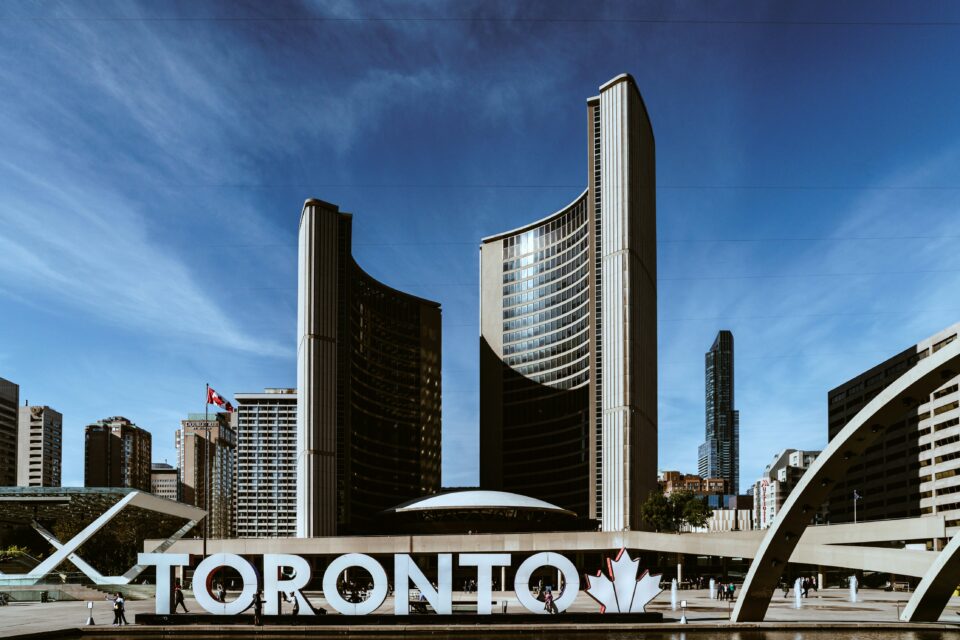The Canadian Government Invests $1.2 Billion in the Rental Construction Financing Initiative
Toronto, Canada’s largest city in the province of Ontario, is set to receive a significant boost in its supply of rental homes. The country’s Deputy Prime Minister and Minister of Finance, Chrystia Freeland, announced last week a federal investment of $1.2 billion to build new rental homes in the city. This investment is part of an ongoing effort to address Canada’s housing crisis and provide more affordable accommodations for Canadians.
The funding will be provided through low interest loans that’re fully repayable under the Rental Construction Financing Initiative (RCFI). Seven new projects, in Toronto will benefit from this allocation of funds. According to the official press release, 2,644 new rental homes will be built within these projects.
The Investment’s Impact on Newcomers
Considering Ontario is Canada’s prime destination for immigrants across provinces and territories, this announcement significantly impacts newcomers settling into their new homes. Not only do these new developments offer housing options for established Canadians, but they provide a welcoming environment for those who have recently arrived in the country.
Canada’s RCFI is projected to create over 71,000 new rental housing units across the nation by 2027-28, contributing to stronger and more vibrant communities that accommodate various backgrounds and lifestyles.
A Glimpse into Canada’s Efforts to Address Housing Crisis
Addressing the issue of housing is part of a broader strategy employed by Canadian authorities to tackle housing affordability, across the country. Recently on November 1st the Ontario government made an announcement regarding the exemption of the Harmonized Sales Tax (HST) for purpose built rentals like apartment buildings, student housing and senior residences intended for long term accommodation.
To be eligible for this “enhanced rebate ” residential construction projects must commence between September 14 2023 and December 31 2030. Furthermore these projects should be completed by December 31 2035.
Alongside investments in rental housing projects in Toronto other government initiatives are also geared towards increasing the supply of homes and enhancing affordability for Canadians.
Given that the demand for homes continues to surpass supply levels these recent endeavours underscore the governments dedication, to providing affordable and accessible housing solutions to its diverse population.
Adding to the article, newcomers to Canada should be aware of several important factors when considering housing options. These include:
- Understanding rental laws and regulations: Each province has specific rules governing rental agreements, such as lease terms, rent increases, and tenant rights. Familiarizing oneself with these policies in one’s new province of residence can help navigate potential challenges more efficiently.
- Budgeting for housing expenses: Apart from rent, other expenses like utilities, internet connection, and tenant insurance should also be considered when budgeting for a new home in Canada. Developing a realistic budget can help prioritize needs and avoid financial difficulties down the line.
- Exploring various neighborhoods: Neighborhoods can vary greatly in terms of amenities, safety, schools, and commute times. Conducting thorough research before settling on a neighborhood or rental property can ensure a smoother integration into Canadian society.
- Checking credit scores and references: A good credit score and reliable references are essential when securing housing in Canada. Newcomers should work towards building a positive credit history as soon as they arrive to make it easier to rent or purchase a home.
- Seeking guidance from local resources: Organizations such as immigrant-serving organizations, non-governmental agencies, and settlement agencies offer services to help newcomers understand their housing options and navigate the rental process in Canada.
Conclusion
Housing is an essential aspect of successful integration into Canadian society for newcomers. With recent initiatives like the Affordable Housing and Groceries Act and the Housing Accelerator Fund, the Canadian government demonstrates its commitment to addressing housing needs for both citizens and newcomers alike. By familiarizing themselves with local laws and regulations, budgeting wisely, exploring suitable neighborhoods, establishing good credit scores and references, and seeking guidance from available resources, newcomers to Canada can overcome many challenges related to finding appropriate housing in their new country.
If you have any questions, please feel free to get in touch with us using our contact form or via email, we will try our best to reply promptly with an answer to your query.
Disclaimer: This article is for informational purposes only, exclusively written and published by IntraSource. The published information is sourced from various trusted platforms, such as news agencies and online media, mainly the Government of Canada and Canadian online media/websites, and should not be considered as legal or professional advice. IRCC’s requirements may change, so consult a lawyer/s and receive professional advice before making decisions or applications.


